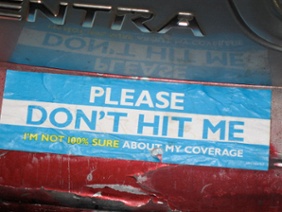Unlike many other states in the country, the Commonwealth of Pennsylvania allows car insurance shoppers a choice between two options – a full tort option and a limited tort option. Introduced as the Pennsylvania Motor Vehicle Financial Responsibility Law in 1990, the pros and cons of each option boil down to this: under a full tort option, drivers will not be limited in noneconomic damages (particularly pain and suffering damages) they can pursue when they’re the victim of an accident but will generally have to pay more expensive insurance rates. Under the limited tort option, on the other hand, drivers can generally pay about 15% less in auto insurance rates but may be limited in the amount they can recover in noneconomic damages. Even with limited tort you may still claim economic losses such as property damage, wage loss, and unpaid medical bills.
Exceptions
But, as is often the case in law, the law that limits noneconomic damages in the limited tort option has some exceptions. A car insurance purchaser who has chosen the limited tort option can still limitlessly recover even noneconomic damages as long as 1) he or she was not at fault for the accident and 2) any of the following conditions apply:
- He or she was injured in a commercial vehicle that wasn’t his or her own private passenger motor vehicle – i.e. commuter buses, motorcycle, rental cars, taxis, work vehicles, etc.;
- He or she was injured in an accident that was the result of a design, manufacturing, or repair defect in the vehicle;
- The at-fault driver had a BAC above .08 at the time of the collision AND was convicted of drunk driving or accepted into an Accelerated Rehabilitative Disposition program;
- The at-fault driver was, at the time of the accident, driving a car that was not registered in the Commonwealth;
- The at-fault driver intended to injure him or herself or someone else at the time of the accident; or
- The at-fault driver was driving without car insurance at the time of the accident.
One More Exception
Still, there is one more (and very important) exception to the limit on noneconomic damages for purchasers of the limited tort option. It’s the “serious injury exception” and is codified as 75 Pa. Cons. Stat. § 1705(d). It’s still unclear what constitutes a “serious injury” for the exception to apply. But, to put it generally, a “serious injury” is one that results in a fatal injury, a serious impairment of a bodily function, or a permanent and serious disfigurement. In determining whether a serious injury exists, the judge or jury, according to Pennsylvania case law, will consider several factors including the following:
- Extent of the injuries;
- Type of treatment stemming from the accident;
- Duration of time for treatment stemming from the accident;
- Extent and seriousness of any remaining medical problems that exist after treatment and improvement; and
- Loss of enjoyment of or difficulty/impossibility in performing any activities following the accident.
Reach Out to Our Attorneys Today
Some of the exceptions – such as whether the at-fault driver’s car was registered in the Commonwealth — are easily determinable and will clearly apply or not apply. But other exceptions – such as the serious injury exception – are not so easily apparent. Defense lawyers or insurance companies will fight tooth-and-nail to make sure none of the exceptions applies and you are limited in recovering noneconomic damages. That is why you need deeply qualified and experienced attorneys on your side. That’s why you need Stampone Law.
